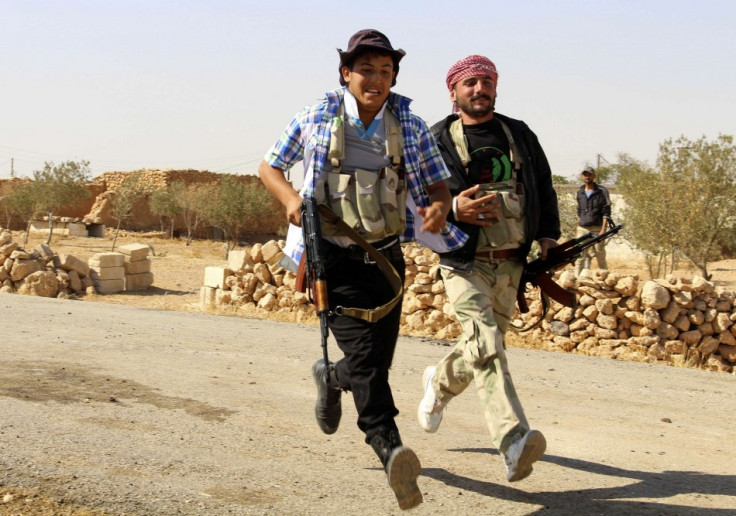Syria: Big Powers Remain Split on UN Draft Resolution [VIDEO]
US, Britain, France, Russia and China spar over wording of resolution on action against Assad regime

UN Security Council members are to continue their talks over the draft resolution intended to eliminate Syria's chemical weapons arsenal.
After an hour-long meeting, the five major powers - the US, Britain, France, Russia and China - remained at loggerheads over the specifics of the West-drafted resolution.
The diplomats are unclear when the vote on the resolution will take place.
Members remained tight-lipped when asked for specifics of the discussions. US spokesperson Erin Pelton said: "In order to respect the integrity of these negotiations, we will not be reading out the details of today's meeting or the draft resolution."
However it is understand that France and Russia sparred over the authorisation of an attack on Syrian leader Bashar al-Assad, if Syria fails to place its chemical weapons under international control.
Russia, which has already vetoed three resolutions demanding firm action against Assad, remains adamant that Chapter VII of the UN Charter, which authorises action to "restore international peace and security", will not be invoked in the resolution.
Although the US, Britain and France have pointed fingers at President Assad's regime for the Ghouta gas attack, Moscow continues to argue that there is no credible evidence against the Assad government.
"The resolution of the Security Council will not contain any reference to Chapter VII. We have the most serious reasons to suggest that this [gas attack] was a provocation," said Russian Foreign Minister Sergei Lavrov said in advance of the meeting.
"Some of our partners have stated dogmatically that only the regime could use chemical weapons ... but the truth should be ascertained," he continued.
Although the UN's recent report claims there is "overwhelming and indisputable" evidence that a gas attack took place in Syria, the report does not specify who was behind the attack.
Meanwhile, the Syrian regime has handed over allegedly plausible evidence to Russia revealing the rebel hand behind the August gas attack.
Russian Deputy Foreign Minister Sergei Ryabkov said following a meeting with his Syrian counterpart that "this evidence must be analysed".
"Without the full picture of the events here [in Syria] we cannot but call the nature of conclusions drawn by UN experts... as politicised, biased and unilateral," he said.
© Copyright IBTimes 2024. All rights reserved.






